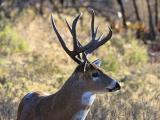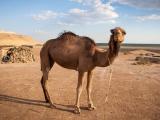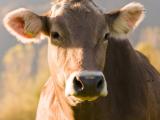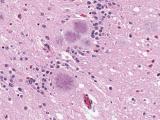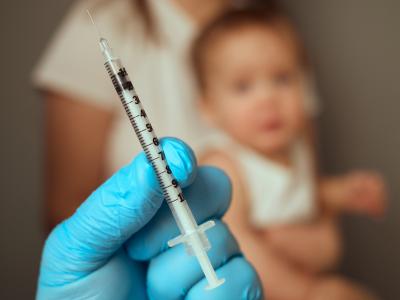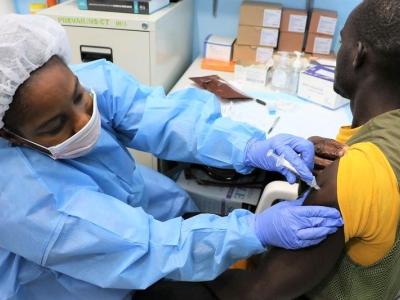Jul 15, 2005 (CIDRAP News) A federal appeals court moved yesterday to reopen the US border to live Canadian cattle for the first time since bovine spongiform encephalopathy (BSE) surfaced in Canada in 2003.
The US Department of Agriculture (USDA) said loads of Canadian cattle may begin rolling across the border as early as Jul 18, in the wake of the ruling yesterday by a three-judge panel of the 9th Circuit Court of Appeals in San Francisco.
The panel overturned a temporary injunction issued by a federal judge in Montana who had blocked the USDA's plan to reopen the border back in March.
The action means that Canadian cattle younger than 30 months old and destined for slaughter before they reach that age can be imported into the United States. Cattle younger than 30 months are considered extremely unlikely to have infective levels of BSE, or mad cow disease.
The USDA said Canadian cattle are eligible for importation as of today. "However, to ensure appropriate certification procedures and policies are in place, USDA does not expect any movement until Monday, July 18, 2005," the agency said in a question-and-answer bulletin.
The unanimous decision by the three judges followed a hearing held Jul 13 in Seattle, according to the Associated Press (AP). The judges said they would issue another ruling soon to explain the rationale for their decision.
The USDA had planned to reopen the border Mar 7 of this year, after determining that Canada was a "minimal risk region" for BSE. But on Mar 2, US District Judge Richard Cebull in Billings, Mont., ordered the agency to delay that step, saying it could increase Americans' exposure to BSE.
Cebull's ruling came in a lawsuit filed by Ranchers-Cattlemen Legal Action Fund, United Stockgrowers of America (R-CALF USA). American farmers have enjoyed higher cattle prices since Canadian cattle were barred, but beef industry officials say the loss of Canadian cattle has forced some US slaughterhouses to lay off workers or even close.
Cebull had scheduled a trial pitting R-CALF USA against the USDA starting Jul 27. It wasn't immediately clear whether that trial would go forward, but the AP report said that in the light of yesterday's ruling, the appeals panel is not likely to allow Cebull to issue another injunction.
US Agriculture Secretary Mike Johanns applauded the appeals court's decision and said his department would take immediate steps to reopen the border.
"This is great news for the future of the U.S. beef industry, specifically the many ranchers, feeders, and processing plants that have been struggling to make ends meet due to the closed border," Johanns said in a statement yesterday. "It also bolsters our position with other international trading partners by following the very advice we have given them to base trade decisions on sound science."
In a statement today, Johanns said, "We will move as expeditiously as possible to begin importing Canadian cattle, but we will do so very carefully to ensure the minimal risk rule criteria are clearly met."
Canadian authorities will issue a health and age certificate for each animal, and USDA veterinarians at border stations will inspect the cattle and the certificates, Johanns said. Cattle will be admitted at 20 border stations scattered from Washington to Maine.
During the Jul 13 hearing, the appeals judges suggested that Cebull perhaps should have respected the USDA's decision to reopen the border, the AP reported. Judge Connie Callahan said the agency "is entitled to some deference. It's their whole job to keep up with the science to make those decisions."
The United States banned Canadian cattle and beef immediately after Canada's first BSE case was found in an Alberta cow in May 2003. In August 2003, the USDA made an exception to allow importation of boneless Canadian beef from cattle less than 30 months old. Two more Canadian BSE cases have surfaced since then, both in January of this year.
The United States has found two BSE cases so far. One was discovered in a Canadian-born cow in Washington state in December 2003; the second was confirmed last month in samples from a Texas-born cow that had died last November.
See also:
